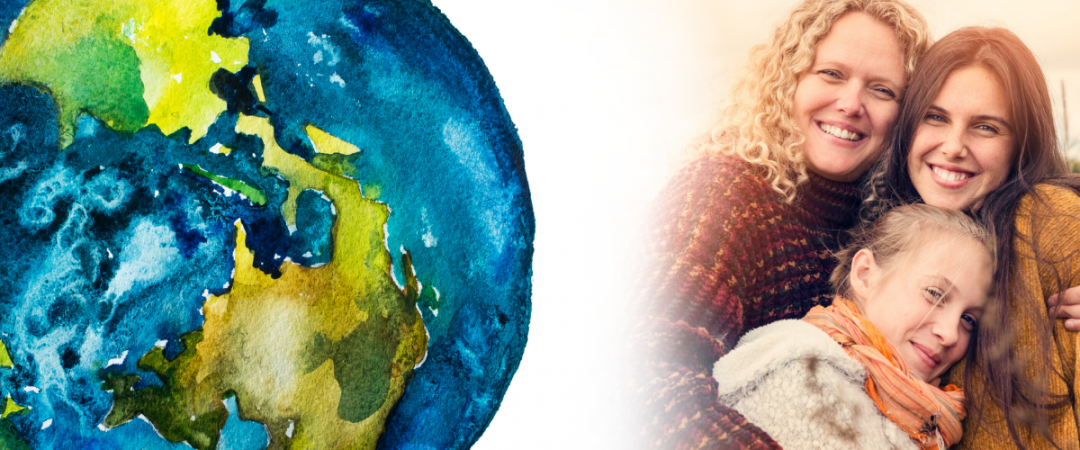Raising Kids: Cultural Differences in Parenting
Categories: General Parenting
In Australia, we’ve got a wide range of nationalities and cultural identities. But, when it comes to parenting practices, a standard, westernised approach seems to be the default. Turns out, we’re missing out! Throughout the world, there’s a huge variety of customs and traditions designed to honour, nurture and guide parents and their children through various stages of their journey, and some of them sound pretty fantastic. Here’s just a few of the different beliefs, traditions, value systems and priorities that inform parents around the globe:
Who runs the world? Mums.

Have you noticed that we tend to focus on the needs of a new baby following their birth, rather than the mother who actually carried them for nine months? This isn’t the case in countries like China and India, where a period of confinement after giving birth is common practice. This time allows a mother to rest and recuperate after the birth, and facilitates bonding with a new bub without too many other competing demands interfering. In China, this period lasts for about a month, and in Guatemala it’s nine months. In India, new mothers spend forty days resting and ignoring the housework, even getting daily massages. As it should be!
When the confinement period ends (or never began) it’s time to get down to the nitty-gritty, like teaching your child how and when to eat, sleep and go to the toilet. In Vietnam, parents use a whistle to toilet train their baby. Similar to the ‘elimination communication’ concept, mothers will develop a sense for when their children need to go to the toilet, and will whistle to remind them. The babies then associate the whistle with the feeling and method and it eventually triggers their physical response. Using this reminder method, many Vietnamese babies are toilet-trained by nine months of age. In some parts of China, babies wear open-crotch pants that allow them to attend to their own toileting with ease, and in Germany, children are expected to be toilet-trained by three, with boys taught to urinate while seated to avoid mess. If only!
In Australia, we tend to start ushering our little ones towards the bedroom by around 7:30pm. For optimal brain development, parental respite and to meet the demands and schedule of the next day, we’ve decided this is what works best. But in some countries like Spain and Argentina, kids stay up much later. 10pm is a pretty standard bedtime there, because family time is highly-valued and this later hour gives kids and parents the opportunity to hang out for a bit longer before they enter the land of nod!
Parents around the world have different priorities and motivations when it comes to raising their children, too. Dutch parents don’t believe in pushing their children too hard, whereas many Asian parents believe they have a duty to push children from a young age to achieve academic excellence. The Japanese are quite private about their children, and won’t usually discuss them and their lives with people they don’t know well, but Japanese children are given greater independence, encouraged to go on errands and catch the subway at the age of seven. In the Polynesian Islands, other kids take on many of the responsibilities of child-rearing, often being charged with the care of babies as soon as they can walk.
In Nordic countries, parents have learnt to adapt their child-rearing practices to work with their colder climes, and will do things like leave their children outside in their strollers while they eat in restaurants. Children often nap outside, too, even when it’s very cold. This is called ‘friluftsliv’ or open-air living, and parents believe it’s good for the constitution of their little ones and reduces the risk of catching colds and flu from the germs circulating indoors.
You’ve probably heard a lot about the school system in Finland already, with children starting at seven and having frequent breaks for play, but did you know Norwegian education is much more institutionalised? Parents in Norway believe that daycare is good for babies and toddlers, and most enter formal care at the age of one. In Sweden, there’s a focus on the rights of the child and the family unit operates democratically.
Throughout Africa, raising children tends to be a more collective endeavour. Whether the responsibility lies with an extended family, tribe or greater network, it’s more common for children to be guided through life by multiple adult figures, whether related by blood or not. Mothers will even breastfeed children who are not their own. Similarly, Indigenous Australians place emphasis on their kinship network or community, and see themselves as a part of this whole. Children know who they are in relation to others in the community, and everyone has a role in helping children grow and learn. This can mean children are monitored and disciplined by those in their extended family network, as well as loved and supported by many.
A few last tidbits…
The Kisii people of Kenya don’t look their babies in the eye because they believe this gives the baby a feeling of power over their parent or caregiver. Nigerian parents tend to be more authoritative, and children aren’t praised often because parents believe this will make them conceited. In Bali, a baby’s feet don’t touch the ground for the first three months, after which time a ceremony takes place to mark the event. It’s believed this keeps the baby pure.
We could go on forever, because there are so many fascinating and eye-opening differences between the way parents across the world go about the task of bringing up their children. Whatever the parenting practices and priorities are, they’re usually driven by the same thing: parents doing their best.
If you’re in Australia, we’d love to know how your culture influences your parenting.
Have you introduced a practice specific to your culture? Are you starting your own customs in your family group?
Let us know!

